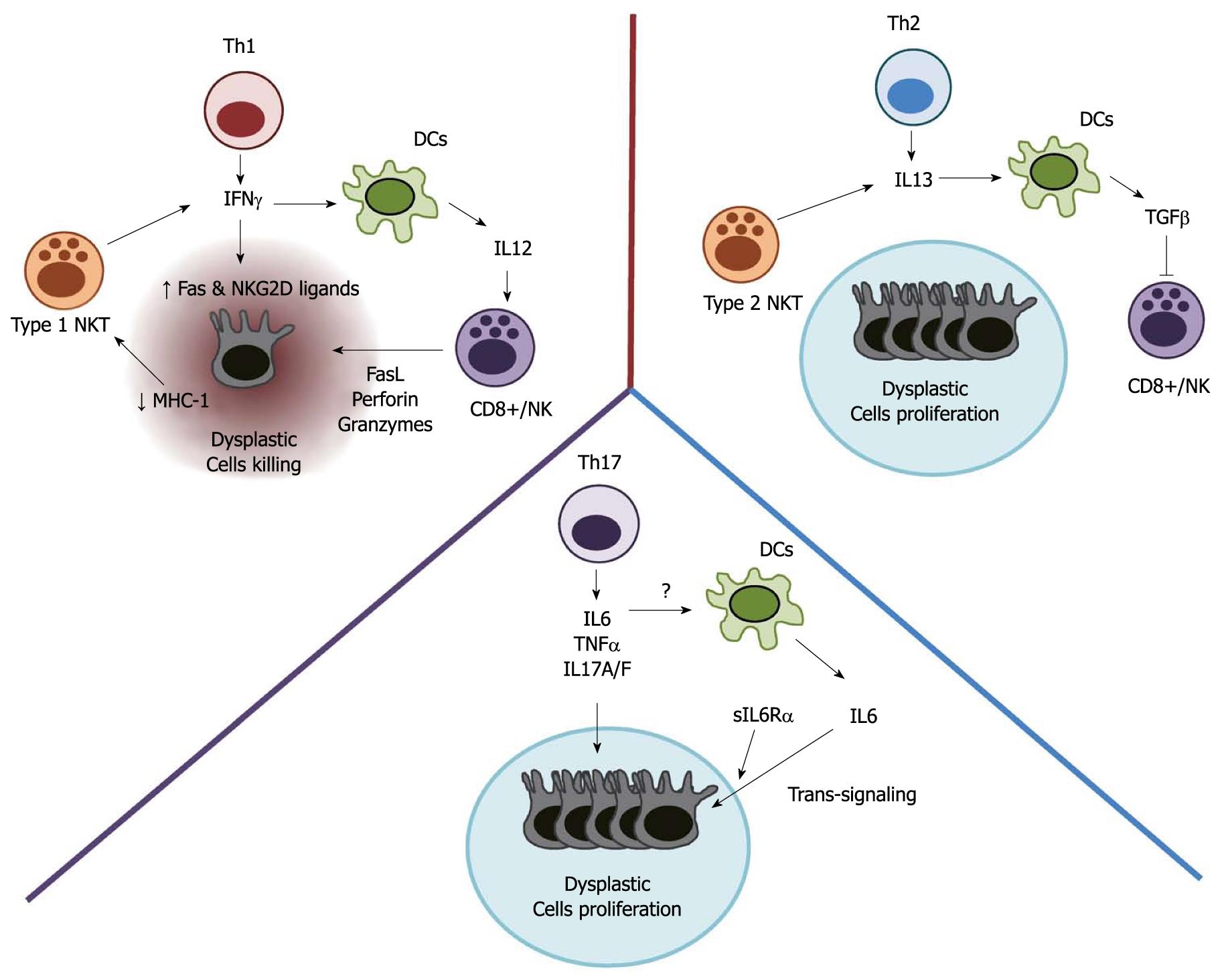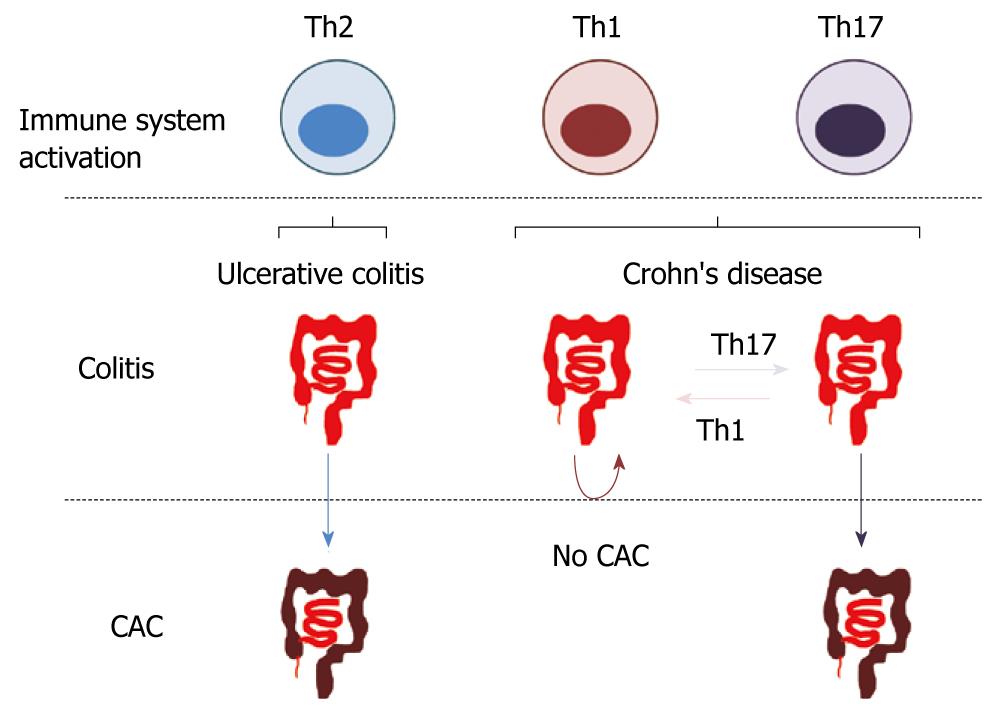Copyright
©2011 Baishideng Publishing Group Co.
World J Gastroenterol. Jul 14, 2011; 17(26): 3092-3100
Published online Jul 14, 2011. doi: 10.3748/wjg.v17.i26.3092
Published online Jul 14, 2011. doi: 10.3748/wjg.v17.i26.3092
Figure 1 Different T helper-mediated immune responses might be associated with distinct effects on dysplastic cell survival.
While Th2 and Th17 immune responses might promote dysplastic cell proliferation and tumor growth, Th1 cells could induce cell death thus preventing tumor progression. Th: T helper; NK: Natural killer; NKT: Natural killer T cells; IL: Interleukin; TGF-β: Transforming growth factor-β; DC: Dendritic cells; MHC: Major histocompatibility complex; Fas: Tumor necrosis factor receptor superfamily, member 6; NKG2D: Killer cell lectin-like receptor subfamily K, member 1; TNF-α: Tumor necrosis factor-α; sIL6R-α: Soluble IL-6 receptor-α.
Figure 2 Hypothetical relationship between inflammatory bowel disease and colitis associated colorectal cancer.
The T helper (Th)2 immune response characterizing ulcerative colitis determines an elevated risk of developing colitis associated colorectal cancer (CAC). In Crohn's disease, while a Th17-mediated immune response could cause inflammation and enhance CAC risk, the shift towards a Th1-mediated colitis could lower the incidence of CAC.
- Citation: Rizzo A, Pallone F, Monteleone G, Fantini MC. Intestinal inflammation and colorectal cancer: A double-edged sword? World J Gastroenterol 2011; 17(26): 3092-3100
- URL: https://www.wjgnet.com/1007-9327/full/v17/i26/3092.htm
- DOI: https://dx.doi.org/10.3748/wjg.v17.i26.3092










